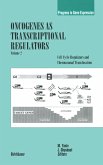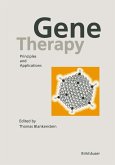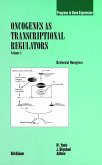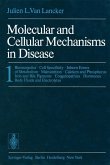Stress-Inducible Cellular Responses (eBook, PDF)
Redaktion: Feige, U.; Polla, Barbara; Morimoto, R. I.
40,95 €
40,95 €
inkl. MwSt.
Sofort per Download lieferbar

20 °P sammeln
40,95 €
Als Download kaufen

40,95 €
inkl. MwSt.
Sofort per Download lieferbar

20 °P sammeln
Jetzt verschenken
Alle Infos zum eBook verschenken
40,95 €
inkl. MwSt.
Sofort per Download lieferbar
Alle Infos zum eBook verschenken

20 °P sammeln
Stress-Inducible Cellular Responses (eBook, PDF)
Redaktion: Feige, U.; Polla, Barbara; Morimoto, R. I.
- Format: PDF
- Merkliste
- Auf die Merkliste
- Bewerten Bewerten
- Teilen
- Produkt teilen
- Produkterinnerung
- Produkterinnerung

Bitte loggen Sie sich zunächst in Ihr Kundenkonto ein oder registrieren Sie sich bei
bücher.de, um das eBook-Abo tolino select nutzen zu können.
Hier können Sie sich einloggen
Hier können Sie sich einloggen
Sie sind bereits eingeloggt. Klicken Sie auf 2. tolino select Abo, um fortzufahren.

Bitte loggen Sie sich zunächst in Ihr Kundenkonto ein oder registrieren Sie sich bei bücher.de, um das eBook-Abo tolino select nutzen zu können.
- Geräte: PC
- ohne Kopierschutz
- eBook Hilfe
- Größe: 75.1MB
Andere Kunden interessierten sich auch für
![Oncogenes as Transcriptional Regulators (eBook, PDF) Oncogenes as Transcriptional Regulators (eBook, PDF)]() Oncogenes as Transcriptional Regulators (eBook, PDF)40,95 €
Oncogenes as Transcriptional Regulators (eBook, PDF)40,95 €![Gene Therapy (eBook, PDF) Gene Therapy (eBook, PDF)]() Gene Therapy (eBook, PDF)73,95 €
Gene Therapy (eBook, PDF)73,95 €![Oncogenes as Transcriptional Regulators (eBook, PDF) Oncogenes as Transcriptional Regulators (eBook, PDF)]() Oncogenes as Transcriptional Regulators (eBook, PDF)40,95 €
Oncogenes as Transcriptional Regulators (eBook, PDF)40,95 €![Molecular and Cellular Mechanisms in Disease (eBook, PDF) Molecular and Cellular Mechanisms in Disease (eBook, PDF)]() J. L. VanlanckerMolecular and Cellular Mechanisms in Disease (eBook, PDF)40,95 €
J. L. VanlanckerMolecular and Cellular Mechanisms in Disease (eBook, PDF)40,95 €![The Mesonephros of Cat and Sheep (eBook, PDF) The Mesonephros of Cat and Sheep (eBook, PDF)]() K. TiedemannThe Mesonephros of Cat and Sheep (eBook, PDF)73,95 €
K. TiedemannThe Mesonephros of Cat and Sheep (eBook, PDF)73,95 €![Nutritional and Toxicological Aspects of Food Safety (eBook, PDF) Nutritional and Toxicological Aspects of Food Safety (eBook, PDF)]() Mendel FriedmanNutritional and Toxicological Aspects of Food Safety (eBook, PDF)73,95 €
Mendel FriedmanNutritional and Toxicological Aspects of Food Safety (eBook, PDF)73,95 €![Animal Toxins (eBook, PDF) Animal Toxins (eBook, PDF)]() Animal Toxins (eBook, PDF)40,95 €
Animal Toxins (eBook, PDF)40,95 €-
-
-
Produktdetails
- Verlag: Birkhäuser Basel
- Seitenzahl: 495
- Erscheinungstermin: 11. März 2013
- Englisch
- ISBN-13: 9783034890885
- Artikelnr.: 53289769
Dieser Download kann aus rechtlichen Gründen nur mit Rechnungsadresse in A, B, BG, CY, CZ, D, DK, EW, E, FIN, F, GR, HR, H, IRL, I, LT, L, LR, M, NL, PL, P, R, S, SLO, SK ausgeliefert werden.
- Herstellerkennzeichnung Die Herstellerinformationen sind derzeit nicht verfügbar.
I: Functions of stress proteins in unstressed cells.- Normal protein folding machinery.- Roles for hsp70 in protein translocation across membranes of organelles.- Protein folding and assembly in the endoplasmic reticulum.- Involvement of molecular chaperones in intracellular protein breakdown.- Molecular chaperoning of steroid hormone receptors.- Protein disulfide isomerase: A multifunctional protein of the endoplasmic reticulum.- II: Regulation of inducible stress responses.- Sensing stress and responding to stress.- The transcriptional regulation of heat shock genes: A plethora of heat shock factors and regulatory conditions.- Transcriptional regulation of stress-inducible genes in procaryotes.- The impact of oxidative stress on eukaryotic iron metabolism.- Heat-shock induced protein modifications and modulation of enzyme activities.- SOS response as an adaptive response to DNA damage in prokaryotes.- III: Cellular responses to specific stresses.- Transcriptional regulators of oxidative stress-inducible genes in prokaryotes and eukaryotes.- UV activation of mammalian stress proteins.- Signaling events controlling the molecular response to genotoxic stress.- Mammalian DNA repair responses and genomic instability.- Toxic metal-responsive gene transcription.- Tumor necrosis factor and lymphotoxin: Protection against oxidative stress through induction of MnSOD.- IV: Paradigms for complex stress responses.- Viral infection.- Infection, autoimmunity and autoimmune disease.- Stress proteins in inflammation.- Attenuated heat shock transcriptional response in aging: Molecular mechanism and implication in the biology of aging.- V: Applications of stress responses in toxicology and pharmacology.- Stress proteins as molecular biomarkers for environmental toxicology.- Thermotolerance and heat shock proteins: Possible involvement of Ku autoantigen in regulating HSP70 expression.- Heat shock proteins as immunological carriers and vaccines.- Regulation of thermotolerance and ischemic tolerance.- Future applications.- Outlook.
I: Functions of stress proteins in unstressed cells.- Normal protein folding machinery.- Roles for hsp70 in protein translocation across membranes of organelles.- Protein folding and assembly in the endoplasmic reticulum.- Involvement of molecular chaperones in intracellular protein breakdown.- Molecular chaperoning of steroid hormone receptors.- Protein disulfide isomerase: A multifunctional protein of the endoplasmic reticulum.- II: Regulation of inducible stress responses.- Sensing stress and responding to stress.- The transcriptional regulation of heat shock genes: A plethora of heat shock factors and regulatory conditions.- Transcriptional regulation of stress-inducible genes in procaryotes.- The impact of oxidative stress on eukaryotic iron metabolism.- Heat-shock induced protein modifications and modulation of enzyme activities.- SOS response as an adaptive response to DNA damage in prokaryotes.- III: Cellular responses to specific stresses.- Transcriptional regulators of oxidative stress-inducible genes in prokaryotes and eukaryotes.- UV activation of mammalian stress proteins.- Signaling events controlling the molecular response to genotoxic stress.- Mammalian DNA repair responses and genomic instability.- Toxic metal-responsive gene transcription.- Tumor necrosis factor and lymphotoxin: Protection against oxidative stress through induction of MnSOD.- IV: Paradigms for complex stress responses.- Viral infection.- Infection, autoimmunity and autoimmune disease.- Stress proteins in inflammation.- Attenuated heat shock transcriptional response in aging: Molecular mechanism and implication in the biology of aging.- V: Applications of stress responses in toxicology and pharmacology.- Stress proteins as molecular biomarkers for environmental toxicology.- Thermotolerance and heat shock proteins: Possible involvement of Ku autoantigen in regulating HSP70 expression.- Heat shock proteins as immunological carriers and vaccines.- Regulation of thermotolerance and ischemic tolerance.- Future applications.- Outlook.







